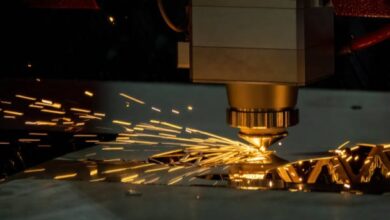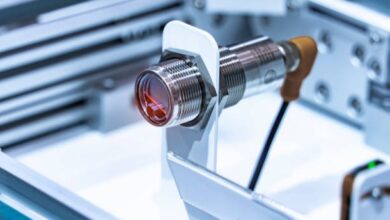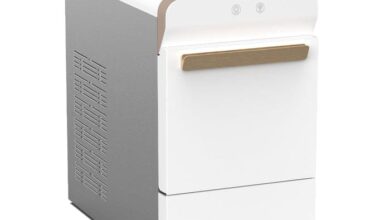Energy Efficiency and Tech: Innovations in Modern HVAC Systems

The world of HVAC systems has come a long way, and now it is one of the most tech-smart industries out there. The leading gadget of this HVAC tech revolution is smart thermostats, as they don’t just control the temperature; they also learn your habits and act along with it.
These smart thermostats are so smart they can also integrate with other smart devices like your smartphone and work together for your ultimate comfort.
Yes, the tech world has moved this far, and wait there’s more. The rise of IoT, artificial intelligence, and advanced sensors are totally changing the game. From my 10 years of experience in this industry, I have seen the beginner level of tech and now see the ultimate level of tech. So, stay with me to go through this beautiful tech revolution.
Integration of IoT in HVAC Systems
IoT (Internet of Things) is a system where devices are interconnected with each other. These devices can communicate among themselves through the internet and take actions together. Devices like smartphones, smart thermostats, vents, and sensors can work together through IoT.
Benefits of IoT:
- Remote Monitoring & Control: IoT ensures that you can control smart devices from your smartphone or computer. For example, you can change the temperature or start the thermostat at home from the office. It can help you have instant comfort when you reach home.
- Predictive Maintenance: IoT sensors can look after the performance of HVAC components and give you real-time data. So, you can have predictive measures before your air conditioner breaks down completely. It will give you accurate data on the health of the system, efficiency, and performance, and also note if any specific part is not doing ok.
- Energy Savings: IoT systems can store your data and help reduce bills. Some smart systems also adjust the settings depending on the weather forecast.
AI & Machine Learning
- Adaptive Temperature Control: AI integration is a game changer for the thermostat industry as it can predict the ideal temperature in a specific situation.
- Fault Detection and Diagnostics: Machine learning algorithms can monitor the data and identify if any specific component of the system is malfunctioning. AI will work together and tell you what you should do to improve it. This way, you can prevent big failures before it’s too late.
- Energy Optimization: AI will actually save you money by reducing energy bills. AI can detect the time and level of comfort you need and adjust the system accordingly. It adjusts in the most optimal way to give you the highest comfort with the lowest energy consumption.
Advanced HVAC Sensors
Sensors are primarily used to collect data from the system. It’s like a tracker that tracks the information from the system. These sensors collect temperature, humidity, and air quality and then provide the information to the system. The system then collects the data and processes it to give you a comfortable life.
Types of Sensors: Why Sensors?
- Occupancy Sensors: The sensors can detect whether you are at home or outside. So, it will stop the thermostat to reduce the bills if you are outside.
- Air Quality Sensors: Nowadays, sensors are so advanced that they can sense if there is any pollution in the air. Then, the system can adjust the ventilation, or it can activate the purifiers to ensure proper quality air.
The air quality is often ignored, but it has to be addressed to ensure the residents don’t suffer respiratory issues.
- Humidity Sensors: Some sensors can detect the humidity inside the house. You may have experienced the variety of weather in the USA. In one part, it may be cold; in another part, it may be warm. Besides, the weather is so unpredictable in some places that you are better off installing smart thermostats to be comfortable.
- Energy Optimization: The aim of future tech is to save more energy with better performance. The HVAC industry has done it in a unique way — with the help of advance sensors. The sensors let the system know where to do the heating or cooling, and when to do it. This makes it more efficient, saving energy.
Smart HVAC Systems for Commercial Buildings
Nowadays, commercial spaces are adapting to smart HVAC systems. It helps them operate at a low cost and with low maintenance. However, setting up these smart HVAC systems in a commercial space is a bit challenging for the newbies.
Let’s see how the HVAC system can help your commercial space:
- Zoning and Customization: Smart systems will divide a commercial space into different zones and maintain the temperature individually. So, it can control the temperature and humidity in different zones without wasting energy on unused space.
- Real-Time Monitoring and Control: In most commercial spaces, building managers look after the smart HVAC system. It allows them to control from a central dashboard and make instant decisions.
- Energy Management: Some commercial spaces also include energy management tools that integrate with smart HVAC systems. This brings them huge savings in energy costs, especially in commercial buildings that have huge thermostats that require a lot of energy.
I have seen commercial buildings saving 30% to 40% on electricity bills just by integrating a smart HVAC system.
Future Trends in HVAC Technology
The future we hope for is always better and smarter, and the future of the modern HVAC industry is no different. HVAC systems, like everything else, will integrate the up-and-coming technologies to make them much more adaptable to general users. Besides, future tech solutions will optimize more and provide maximum output for very little energy, pushing every single boundary of energy efficiency. AI and advanced machine learning in HVAC tech have already started to understand when a space needs cooling or heating and adjust accordingly.
Future tech to influence HVAC
- Smart Grids: Smart grids ensure more efficient energy distribution and usage. Their job is to maintain the heating and cooling in different zones to cut energy costs. Smart grids also help the environment by ensuring proper usage of the system.
- Blockchain for Energy Management: Blockchain technology can actually open up a new door in this industry. This technology could enable decentralized energy markets where homeowners with renewable energy sources can trade energy with their neighbors.
- Integration with Home Systems: The future depends on the ability to integrate with other smart devices and create an ecosystem. Smart devices that work together seamlessly offer a number of benefits, including reducing specific-device dependency, superior efficiency, and, most importantly, ensuring effortless control. That’s the way I like it, and I think most people would want hassle-free control like me.
On top of that the HVAC system needs to maximize output with the least energy with minimal environmental impact. That’s the way it is going to be within a few years.
Most of the future tech that we are talking about are on the way; some are already integrated into the system. The smart grid system, blockchain, and integration with other smart systems are coming to save energy and reduce utility bills for the users.
The integration of IoT, artificial intelligence, and advanced sensors has already made HVAC systems better and more comfortable. However, the future will be far better than now, as more advanced technology is coming to the industry. The revolution has already started; now, it is our duty to know how to use it and where to use it.



